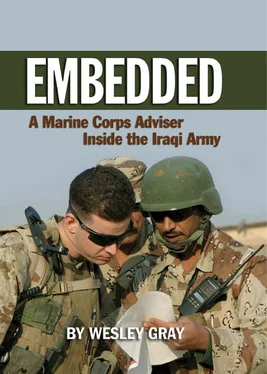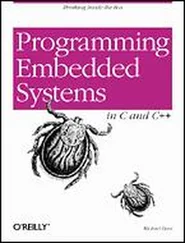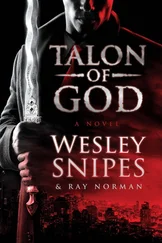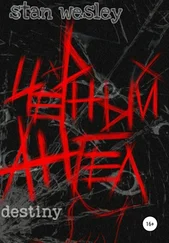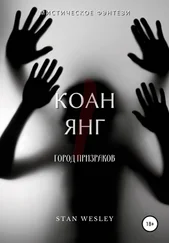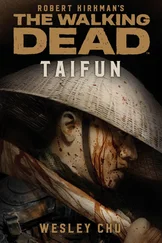“Militias? What about militias?” Mark stumbled from his rack and into the conversation. “Mark, what’s going on, brother?” I said. “We weren’t talking about militias, we were talking about how the Iraqi army is made up of mercenaries.” Mark replied, “Oh… well, I feel stupid.” I comforted him. “Sit down, man. Let’s talk about militias, I guess it’s related and you seem excited about the topic.” Mark eagerly jumped up to join the conversation.
“Mark, Jeysh il Mahdi [the Mahdi army], what’s their story?” Mark replied, “The Mahdi army? Oh, it is run by our good friend Muqtada Al Sadr in the Sadr City district of Baghdad. I love those guys!” I sneered at Mark and said, “You love the Mahdi army? The same guys who are causing many of the problems in Iraq?” Mark retorted, “Problems? Man, those guys kick ass. In my neighborhood in Baghdad they are the only reason my family is still alive! They walk around my neighborhood and make sure no Sunni or other troublemakers are in the region. If someone from outside the local area is in town and can’t explain why they are there they are shot.”
I immediately asked, “Well, what happens if I just want to hang out or check out your neighborhood.” Mark replied, “Jamal, there is no ‘hanging out’ in Baghdad these days. Anyone who says they are just visiting is a terrorist.”
The talk of militias got me thinking: How many of our jundi on leave go back home to moonlight as militia members? Are we simply training the Mahdi army? I asked Mark, “Dude, what percentage of our battalion is Mahdi army or part of a militia? I see Muqtada Al Sadr pictures on the jundi ’s cell phones all the time.” He responded, “Well, I do not know the exact portion, but my guess is there are many. I have spoken extensively with Qatan, Sermen, Ayad, and Badr on the subject and its seems the general assessment is that at least half of our battalion probably moonlights in a Shia militia when they go home on vacation.”
I retorted, “Mark, there is no way, man.” He replied, “Jamal, there is a way—think about it. You are a young military man, strong, trained, and so forth. How can you not join a militia when you get home? Your family and tribe would be ashamed if you did not help the local militia. You think it is coincidence that all the militia members on television look just like jundi in civilian clothes?” Defeated, I replied, “Yeah, you are right. I guess I just haven’t connected the dots until now.”
Mark continued to describe the militias. His basic point was that the militias did a good thing for the communities because they provided security and kept outsiders from causing problems in the neighborhood. In effect, they were the neighborhood watch with AK-47s and RPGs.
After gaining insight into why the militias were so revered by the people in Iraq, I understood why it would be difficult to get rid of them. From the local Iraqi perspective, when the central government told the militias they needed to disband, they were effectively telling the local citizens that they were taking away their security and letting them be slaughtered. The central government’s claim was that the Iraqi security forces would take care of the job, but this was nonsense or the militias wouldn’t have been needed in the first place. It appeared that part of the final solution in Iraq would involve accepting militias in Iraq.
Somehow our conversation started with why Iraqis are lazy, moved to militias, and ended up on the discussion of oil. Whoever coined the phrase “It’s all about oil in the Middle East” was a genius. It is all about oil. Mark, unlike other Iraqis, spoke about oil in a positive light. “Jamal, we have the ability to produce three million barrels of oil a day and have over one hundred billion barrels in the ground,” he told me. “If we can produce three million barrels a day, 333 days a year, we are pumping out one billion barrels a year. If oil stands at eighty dollars a barrel, that equates to eighty billion dollars in revenue a year for Iraq.” He explained further. “Let’s say it costs twenty dollars a barrel to get it out of the ground. In the end, Iraq has sixty billion dollars in profit. Iraq only has a population of around twenty-three million these days. What this means is that we could pay every single Iraqi almost thirty-five hundred dollars per year. It is insane that we continue to fight and bicker.”
“Dude,” I said, “that is insane. These jundi make four thousand dollars a year [outstanding pay in Iraq] and their life sucks. Now tell me this, are you saying that if everyone in Iraq just stopped fighting, went to their homes, and engaged in a national oil effort they could double the average Iraqis wage [perhaps two thousand dollars a year]?” Mark replied, “That is exactly what I’m saying. Pretty crazy isn’t it? The problem is I’m a Kurd. We understand this logic. The Arabs, not so much. They will never trust each other to do something like this.”
Regrettably, I think Mark’s assessment is correct. In the midst of everyone trying to get their fair share, they will forget to share.
There are no days off in Iraq. Some 122-mm mortars hit the Iraqi army side of the Barwana FOB on one of our supposed days off, liquidating one jundi and mutilating another. We were immediately dispatched to retrieve the body and calm the jundi at the Barwana FOB. We mounted the trucks and prepped our gear.
I was furious that the insurgents had killed the jundi , but my anger was contained. In contrast the jundi were hell-bent on revenge. On the trip to Barwana they engaged two vehicles because they “looked suspicious.” In both cases it was obvious the jundi were acting out of character. Normally they respected civilians and granted them the benefit of the doubt, but when they were wired, everyone was an insurgent and deserved death.
The return trip home was no less heated. Immediately after loading the angels into the Kraz and exiting friendly lines at the Barwana FOB, radio traffic spewed over the Iraqi net: “We are taking fire.” The Iraqis quickly engaged a vehicle on the side of the road. Doc, the world-class Navy corpsman he is, lunged from the side door of our Humvee as it was still rolling to a stop and sprinted to the scene to administer first aid. The jundi had fired indiscriminately into a vehicle and three rounds had shredded an older man’s legs. Despite the patient’s profuse bleeding, Doc promptly stabilized the civilian and saved his life.
The event happened so quickly it was hard to decipher the situation. Luckily, at the time of the incident another group of Marines were watching over the scene. The squad leader radioed to our truck, “Shadow, what the hell are your Iraqis doing? The lead Humvee just started firing on a vehicle.” Major Gaines replied, “They told us they were being fired upon.” The Marine on the hook responded, “Negative, Shadow. They fired at vehicles on the west side of the road with civilians. Unprovoked. We’ve been watching the entire incident.”
I looked at Gaines. “Sir, these guys are insane.” Gaines nodded in agreement and replied on the radio, “Roger, we’ll address the issue with the jundi when we arrive to Camp Ali. Report the incident as you saw it to your higher headquarters. Sorry about the mix up.”
We did a quick turnover with the Marines on location and forced the jundi to get out of the scene. At this point they were just loose, loaded cannons on the road. The longer we had them outside the wire in an emotional state, the better chance we had at landing a headline on the CNN nightly news.
As if the Iraqis hadn’t caused enough chaos on the convoy, the excitement continued. While on Route Raptors, a military-only route along Lake Qadisiyah, the convoy came to an abrupt halt. Before I knew it the jundi were on their feet chasing down a vehicle. By the time we got to the scene the jundi had five young Iraqi males lying flat on the desert floor with their hands tied behind their backs. I addressed the situation with Captain Natham, the convoy commander. “NaQeeb Natham, Shaku Maku? Leysh nugof hinah?” (Captain Natham, what’s going on? Why did we stop here?) He responded irrationally. He and the jundi felt these kids were responsible for firing the 122-mm into the Barwana FOB. In my mind these kids were obviously a group of brothers who had been fishing throughout the day and were on their way home. Nevertheless, after a long discussion it was determined that the young men would be taken back to Camp Ali for further interrogation. We were completely against the idea, but sticking to the adviser code we let the jundi carry on with their actions.
Читать дальше
